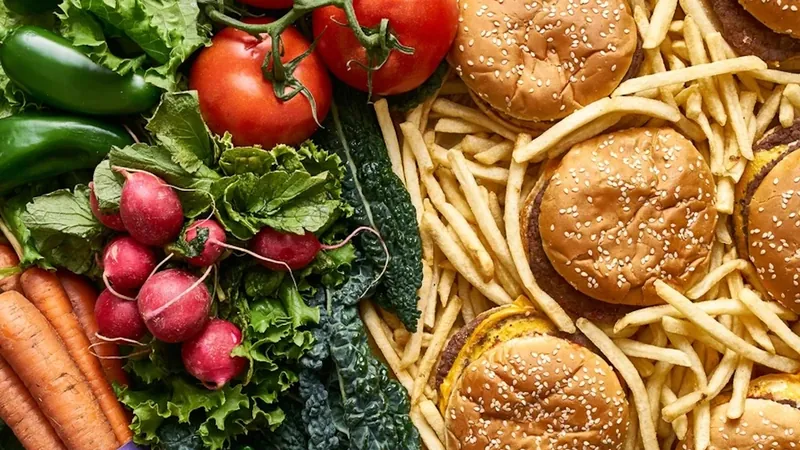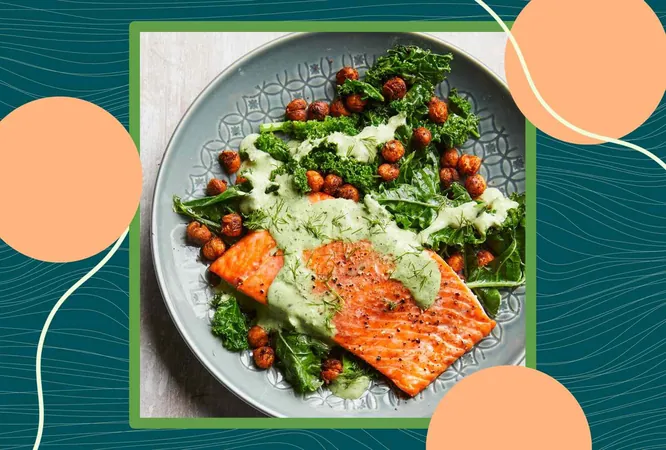
Why Ozempic Users Are Ditching Meat and Fried Foods: The Surprising Science Behind Taste Changes
2025-05-10
Author: Jia
Imagine loving to cook your favorite meals only to find that they suddenly taste unappealing. This is the reality for many users of the weight-loss drug Ozempic and its sister medication, Wegovy. Alyssa Fraser, a former food reporter from Minnesota, found her passion for cooking fading away after starting Wegovy, leading her to describe her culinary favorites as suddenly repulsive.
Research indicates that users of GLP-1 medications like Wegovy and Ozempic report significant alterations in their taste perceptions. Originally designed to combat type 2 diabetes, these medications trigger insulin release and promote satiety, which helps users lose weight. However, many are noting a peculiar side effect: a dislike for foods that were once enjoyable.
What’s Going on with Our Taste Buds?
While undergoing treatment, individuals have reported an aversion to meats and fried foods, claiming that certain proteins evoke a 'barnyard' taste. Something as simple as a glass of wine can morph into a green, unpleasant flavor. Based on online discussions and a study published in the journal Food Quality and Preference, users are not only eating fewer calorie-dense meals but also embracing healthier options like fruits, leafy greens, and more water.
Interestingly, while GLP-1 medications reduce the desire to consume heavy, meaty foods, they don’t necessarily eliminate all cravings. According to psychobiology expert John Blundell, the distinction lies in how medication users often still enjoy those foods but have less urgency to eat them.
The Science Behind Taste Changes
Scientists speculate that the drugs might alter bodily responses toward food by affecting GLP-1 receptors found in taste buds. This could lead to stronger taste perceptions or an overall diminishment in taste sensitivity. For example, early studies show that users on semaglutide experienced an increase in nerve activity related to sweet taste perception, while other research suggested a decreased sensitivity to all basic tastes.
Fraser is not alone in her experience. Another user, Siobhan, finds previously beloved dishes like panang curry turning bitter, and Sarah, a Wegovy user, can’t stomach eggs anymore. Such shifts highlight the complex relationship between drugs, our taste buds, and our emotional connections to food.
Health Benefits Versus Culinary Cravings
For some, the benefits of weight loss and reduced cravings outweigh the loss of culinary enthusiasm. Yet, for others, it's a bitter pill to swallow. Fraser reports trading in her joy of cooking for sweets, but even that pleasure is fleeting. With the mental burden of weight loss diminished, she weighs the pros and cons, asking herself, "Is it worth it?" While health improvements are welcome, this new relationship with food can be challenging.
The Future of Food and Medication Interactions
As researchers delve deeper into the connection between GLP-1 medications and altered taste perception, the outcomes may offer insights into improved dietary guidance for those on weight-loss drugs. The question remains: how do we navigate the balance between health benefits and the joy of eating wisely in a landscape rapidly shifting due to medications?




 Brasil (PT)
Brasil (PT)
 Canada (EN)
Canada (EN)
 Chile (ES)
Chile (ES)
 Česko (CS)
Česko (CS)
 대한민국 (KO)
대한민국 (KO)
 España (ES)
España (ES)
 France (FR)
France (FR)
 Hong Kong (EN)
Hong Kong (EN)
 Italia (IT)
Italia (IT)
 日本 (JA)
日本 (JA)
 Magyarország (HU)
Magyarország (HU)
 Norge (NO)
Norge (NO)
 Polska (PL)
Polska (PL)
 Schweiz (DE)
Schweiz (DE)
 Singapore (EN)
Singapore (EN)
 Sverige (SV)
Sverige (SV)
 Suomi (FI)
Suomi (FI)
 Türkiye (TR)
Türkiye (TR)
 الإمارات العربية المتحدة (AR)
الإمارات العربية المتحدة (AR)